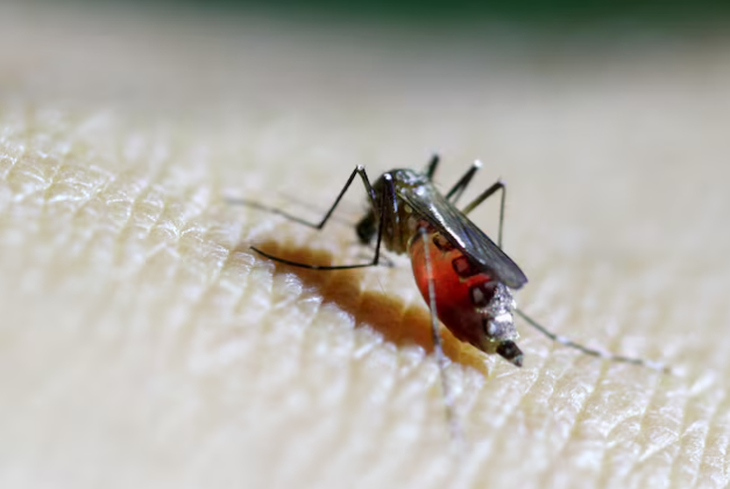
A female mosquito sucks blood from the hand of a medical technician - Photo: REUTERS
Faced with the strong outbreak of Chikungunya, the Chinese government is urgently applying a series of drastic measures to control the epidemic, especially in Guangdong province, which is becoming a "hot spot" for new infections.
More than 6,000 cases, blood testing widely deployed
The Economic Times quoted the Guangdong Provincial Center for Disease Control and Prevention (CDC) as saying that in just the first week of August (from August 3 to 9), the locality recorded 1,387 new infections.
In Foshan city alone, where the first case was recorded on July 8, the total number of infections has now exceeded 6,000.
On social media, residents in many areas of Guangdong shared that they were being asked to take mandatory PCR blood tests - part of a large-scale epidemic control campaign.
Releasing 5 million mosquitoes every week
One of the most prominent features in China's strategy to deal with this epidemic is the application of Wolbachia transinfection biotechnology - using bio-modified mosquitoes to cut off the reproductive chain of natural mosquitoes.
In Guangzhou's Huangpu District, the Wolbaki Company - the country's largest mosquito breeding facility - is operating non-stop, releasing about 5 million genetically modified male mosquitoes into the environment every week.
Unlike female mosquitoes - the only species that suck human blood and transmit diseases - male mosquitoes do not suck blood. When treated to carry Wolbachia bacteria, male mosquitoes will cause the eggs laid by female mosquitoes to become sterile, unable to hatch into offspring due to the phenomenon of "cytoplasmic incompatibility".
The production process at the “mosquito factory” is almost completely automated. Robots sort larvae, while machines separate male and female mosquitoes with an error rate of less than 0.5%. When they reach adulthood, the gender confusion rate is less than 0.3%, ensuring accurate and safe control of wild mosquitoes.
Gong Juntao, head of research at Wolbaki, said the technology has helped to dramatically reduce the density of Aedes mosquitoes - the vector that transmits diseases such as Chikungunya, Dengue and Zika.
Many experts consider Wolbachia a breakthrough, environmentally friendly solution that reduces the use of mosquito-killing chemicals and helps maintain ecological balance.
However, the long-term effectiveness of the method still requires further follow-up time and experimental data to verify.
Source: https://tuoitre.vn/trung-quoc-tung-doi-quan-muoi-vo-sinh-giua-tam-dich-chikungunya-20250813163541168.htm








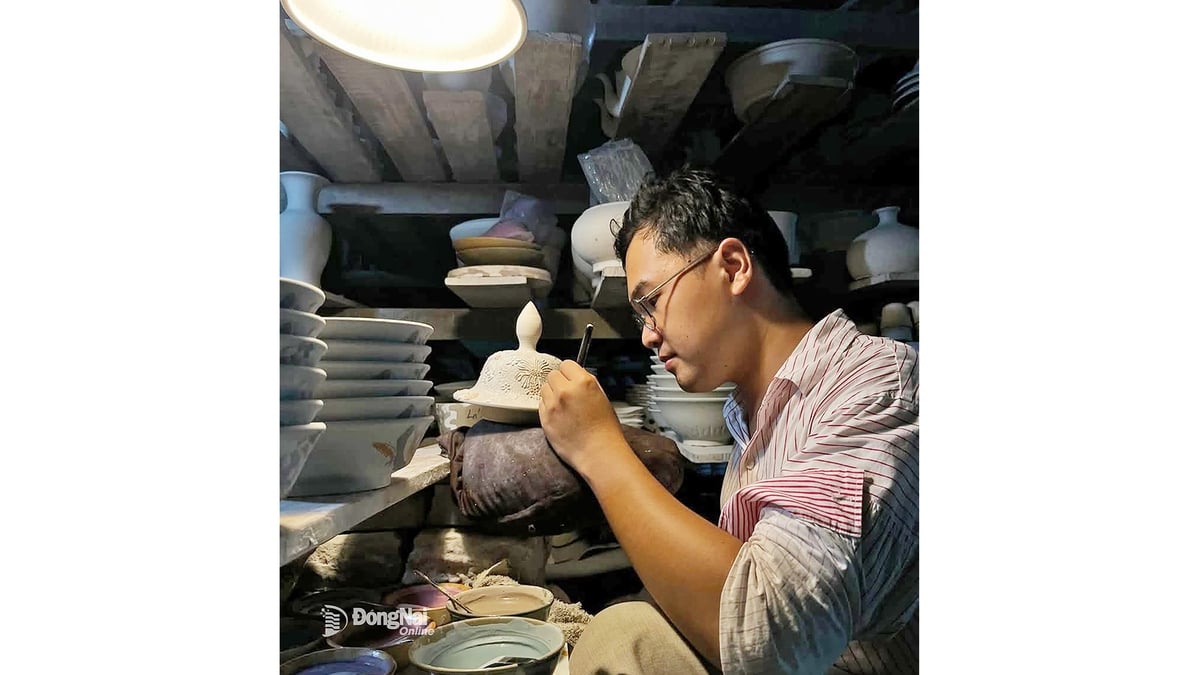















![[Photo] The special solidarity relationship between Vietnam and Cuba](https://vphoto.vietnam.vn/thumb/1200x675/vietnam/resource/IMAGE/2025/8/15/5f06c789ab1647c384ccb78b222ad18e)
![[Photo] Firmly marching under the military flag: Ready for the big festival](https://vphoto.vietnam.vn/thumb/1200x675/vietnam/resource/IMAGE/2025/8/15/86df2fb3199343e0b16b178d53f841ec)

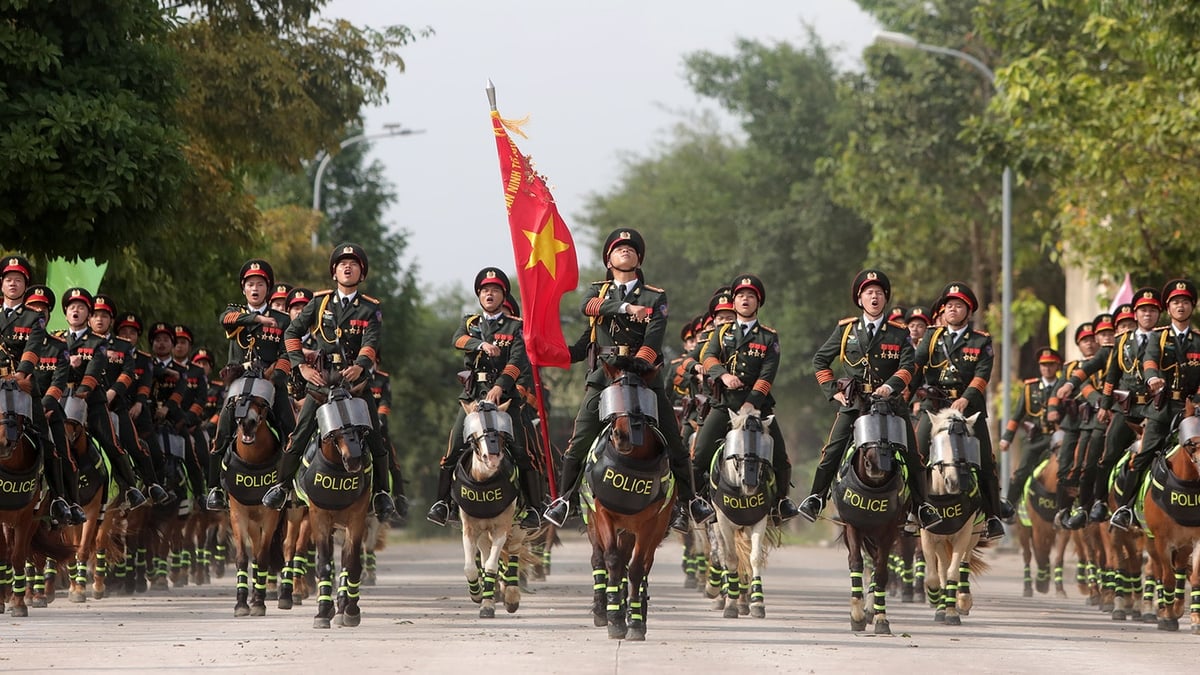
![[Photo] Prime Minister Pham Minh Chinh attends a special art program called "Hanoi - From the historic autumn of 1945"](https://vphoto.vietnam.vn/thumb/1200x675/vietnam/resource/IMAGE/2025/8/15/c1c42655275c40d1be461fee0fd132f3)
![[Photo] Prime Minister Pham Minh Chinh talks on the phone with Cambodian Prime Minister Hun Manet](https://vphoto.vietnam.vn/thumb/1200x675/vietnam/resource/IMAGE/2025/8/15/72d3838db8154bafabdadc0a5165677f)

![[Photo] Binh Khanh Bridge Ho Chi Minh City is ready to reach the finish line](https://vphoto.vietnam.vn/thumb/1200x675/vietnam/resource/IMAGE/2025/8/14/b0dcfb8ba9374bd9bc29f26e6814cee2)




















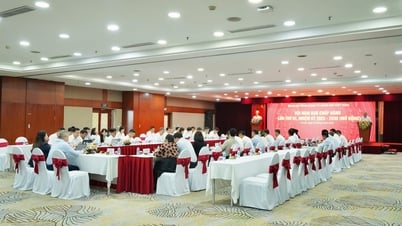








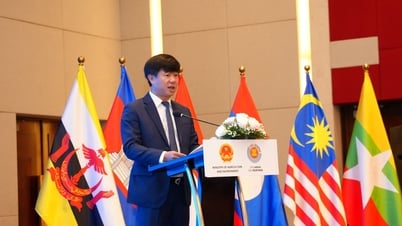

![[Photo] President Luong Cuong receives Finnish Ambassador to Vietnam Keijo Norvanto](https://vphoto.vietnam.vn/thumb/402x226/vietnam/resource/IMAGE/2025/8/15/9787f940853c45d39e9d26b6d6827710)




































Comment (0)